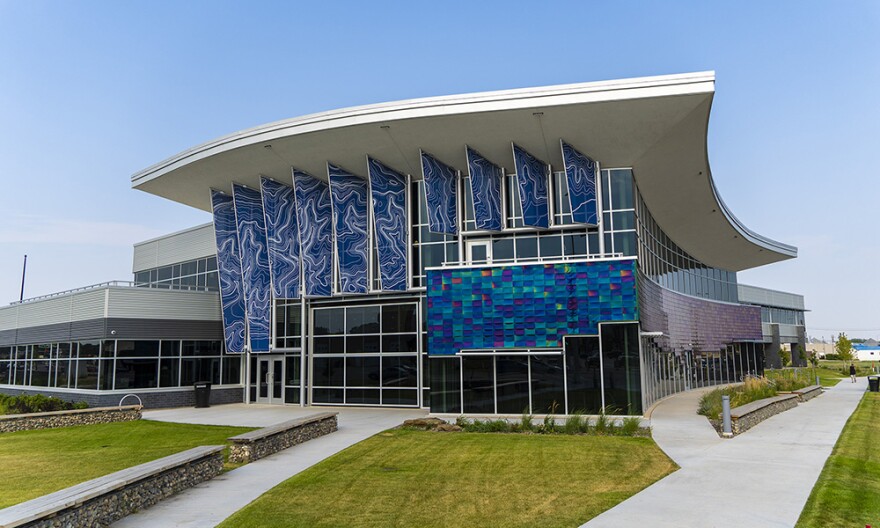A Rapid City tech incubator now has a modern building that reflects the cutting edge startups being developed inside.
The David Lust Accelerator Building provides mentorship, networking, and office, lab and meeting space for new startups.
It's also the permanent home for economic development agencies that serve as a resource to those startups.
Elevate Rapid City celebrated the grand opening of the building, which it hopes will be part of an entire tech startup campus.

The goal is to create a tech startup scene in Rapid City and prevent brain drain from South Dakota Mines, which Elevate officials say will benefit the entire local economy.
"If you build the infrastructure for these entrepreneurs they will stay," said Elevate CEO Tom Johnson. "The reason you put a facility like this in place is just to give them space, but there's all these wraparound services that we provide entrepreneurs that we can give them access to as well."
Those resources include connections to potential funders, Johnson said.
He said the accelerator program is also meant to draw in out-of-state entrepreneurs already attracted to Rapid City's proximity to the Black Hills and growing beer and coffee scenes.
The David Lust Accelerator Building — which will be called D-LAB or LAB — is named after the Rapid City lawyer and former lawmaker.
Lust, who unexpectedly died in July, played a key role in developing Elevate and its accelerator program.

The silver building has panels that shimmer like fish scales changing between purple, blue and other cool colors as they reflect off the sunlight. And the royal blue sun shades look like sails on a ship.
D-LAB replaces the Ascent Innovation Center, which opened in 2006 inside a single-story brown building tucked away at South Dakota Mines.
Now, it has a striking, 40,000 square-feet center in downtown Rapid City and plans for even more buildings on a 4.3-acre campus.
About 25% of the building is permanent office space for Elevate Rapid City, the South Dakota Ellsworth Development Authority and the West River office of the Governor's Office of Economic Development.
The rest of the building is for tech startups that can rent for up to five years as they raise capital and develop their business.
D-LAB will accept startups with a documented business plan and entrepreneurial qualities that demonstrate potential for job creation and growth.
Some startups that began at Ascent have developed into national and international companies. Graduates include VRC Metal Systems, which created cold-spray metal technology for the aircraft industry, and Property Meld, which is opening its own building in Rapid City.
Jared McEntaffer is CEO of Benchmark Data Labs, which does data research and visualization for nonprofits, governments and other clients.
McEntaffer said the old Ascent incubator was helpful in making his nonprofit a success.
"You can talk to all these people that are going through all the same issues and troubles and success that you are," he said. "And so you have access to those conversations and the ability to tap into the knowledge that can really help you."
D-LAB was designed by Madison, Wisconsin-based Strang Architecture and built by Rapid City-based Scull Construction.
The building has elements that reflect the Black Hills, said architect Peter Tan.
Meeting rooms have wallpaper depicting the Badlands and kaleidoscope-like patterns of agate rocks. A conference room has sound panels that mirror the hills of Rapid City. A topographic map of the city overlaps a mural and exterior sunshades.
The $15 million campus was supported with $8.5 million from Elevate, $3.2 million from the U.S. Economic Development Administration and $1.7 million from the state of South Dakota. Rapid City donated $1.6 million worth of land.
Elevate plans to sell the old Ascent building to South Dakota Mines, a move that would have to be approved by the Legislature. But Elevate says it will continue to have close relationships with the university and provide internship opportunities for students.
Mines plans to turn the building into research space it needs for several of its new multimillion-dollar research projects, said spokesman Mike Ray.






